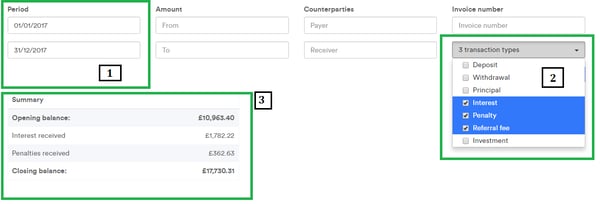Reminders
Investly sends out automatic reminders to the seller and buyer in case the invoice is not paid on time. In some cases we have to follow-up with phone calls. Most of the time this helps solve the issue.
Repurchase obligation
After 30 days have passed from the invoice due date, Investly has the right to ask the invoice seller to repurchase the invoice. In case the seller and buyer are willing to cooperate, Investly is willing to consider alternatives, such as agreeing on a payment schedule, to settle the debt. However, if there is no progress, we do not hesitate to ask the seller to repurchase the invoice.
Payment default publication (EST)
In case a payment is late more than 45 days, a company can publish a payment default notification that is visible to the public. This can be issued against the buyer 45 days after the due date and the seller 45 days after the recourse date. A publicly visible payment default notice is a signal to all business partners that the company has financial difficulties. In a number of cases the threat of publicising the debt has helped us collect the debt faster.
Out of court settlements
A solution that is midway between an agreement and court proceedings is signing a payment schedule at the notary’s office. The advantage of such a deal is that upon failure to adhere to the schedule, Investly can turn to the bailiff to demand immediate enforcement of the contract (ie. the debt has to be paid in full without additional court proceedings). A judge is likely to ask parties to reach an agreement, this means signing a payment schedule that does not involve court proceedings is actually a preferred solution, saving investors time and money.
Court proceedings
If the parties don’t show willingness to cooperate Investly can and will start court proceedings to collect the debt. This is the most time-consuming and most expensive form of collecting debts. Whenever possible, Investly tries to find a faster and cheaper solution for the benefit of investors. Enforcement of personal guarantees also has to be done through the courts. Cases that end up in court have an unpredictable timeline of resolution because the defendants and accusers have the right to appeal a decision.
Debt collection agencies
In the United Kingdom court proceedings against the company and the individual are taken by a collection agency. Most cases that are overdue more than 60 days are handed over to a collection agency. However, is the seller and/or debtor cooperate with Investly, the case will be handled in-house.




